The “One Lake” project may finally get a real public viewing soon. Photo by Imani Khayyam.
Wednesday, December 27, 2017
JACKSON — The "One Lake" plan and its current proposed footprint may be finally coming to fruition. Or at least into public view.
The 2007 map of the Rankin-Hinds Pearl River Flood and Drainage Control District, commonly called the Levee Board, includes just a sliver of Jackson, predominantly along the Pearl as well as a piece of downtown and the Mississippi Coliseum. The western border of the district goes south along State Street past Interstate 20, including all of Jackson east of State Street, which slopes down the hill to the river bank. It includes much more of Rankin County, including large parts of south Flowood, downtown Pearl and part of Richland.
The map indicates the jurisdictional boundaries of the district, the technical area that should benefit from the new One Lake flood-control plan. Project supporters say their plan will benefit areas beyond the 2007 district lines, however, promising details in the report once it is released to the public.
The Rankin-Hinds Pearl River Flood and Drainage Control District is almost entirely funded from a tax millage from Rankin and Hinds counties, a 2010 PEER report shows. Property owners located within the boundaries of the district pay the same millage rate, but Rankin County has much more taxable property in the district than Hinds County.
"Rankin County property owners collectively generate seven times more millage revenue than Hinds County property owners," the 2010 report says.
Currently, the Rankin-Hinds district maintains levees along the Pearl River within district boundaries. From 2001 to 2010, the district earned $6.4 million from millage and interest, spending almost all of that , the PEER report shows. The Mississippi Development Authority gave the district a $200,000 grant as well. As the district works to finalize its new "One Lake" flood- control plan, at least some new funds could come from taxes the board levies after the Legislature passed House Bill 1585 in 2017. The bill says the board "may levy a special improvement assessment that applies only to property in the district that is directly or indirectly benefited by the project to provide funds for the operation, maintenance and preservation of the project."
Dallas Quinn, with the Pearl River Vision Foundation, said the goal of the soon-to-be-released report was at least 80-percent reduction in flood damages if a 100-year flood event were to occur in the project area in Rankin or Hinds Counties. The report could go public as early as January 2018.
Nearing the End of Review
Public hearings on the "One Lake" flood-control and development project could happen in early 2018 if the levee board gets its way. The levee board is sponsoring the One Lake project, along with the Pearl River Vision Foundation. The Vicksburg District U.S. Army Corps of Engineers is working with the levee board, but the project falls under "Section 211" of the Water Resources Development Act.
That means the process for project approval is much more flexible than traditional Corps projects and, ultimately, the federal government can reimburse project planners up to a certain amount.
The Corps authorized the levee board to execute the Pearl River plan as a Section 211 project in 2008. The authorization letter shows the project will cost a total of $205.8 million with an estimated federal cost of $133.7 million and $72.03 million in non-federal costs. The district's initial Two Lakes proposal fell through, and now the levee board is pursuing the current One Lake proposal. Two Lakes was a long-time pet project of oilman John McGowan, whose family members and partners owned a lot of potentially lucrative waterfront property within its footprint. He also started the Pearl River Vision Foundation.
At the board's Dec. 11 meeting, members including several local-area mayors approved a third service agreement that would complete the agency technical review on the project and get the document to Washington, D.C., for approval, levee board attorney Keith Turner said.
"The Corps is basically going to assist us. We're carrying most of the water in the situation, no puns intended," Turner told the board. "It's (Department of) Fish and Wildlife interaction—it's coordination with them. It's providing updates to our congressional delegation and NEPA participation as well as public process as well."
NEPA, the National Environmental Policy Act, allows citizens to participate in proposed environmental projects by submitting public comment and participating in the approval process for projects. The One Lake project is subject to NEPA, too.
The first support agreement between the board and the Vicksburg Corps district, signed in 2013, is worth $58,000. The service agreements provide payment to the Vicksburg District Army Corps of Engineers to review the project's progress and provide feedback. On Dec. 11, the board also approved a contract with Battelle, a science and technology research organization, to conduct the final, independent review of the One Lake plan.
"That's our third and final review, and that will be the last step in this vetting process," Turner told the board. "They are promising a 60-day turnaround."
Public Comment Coming
Initially, project planners wanted to simultaneously conduct public comments during the independent review process. Turner told the board that the Corps gave them a revised schedule last month, however, advising the levee board to wait to do public comment until after the independent review was finished.
"I believe that process will compromise our ability to comply with NEPA," Turner said at the Dec. 11 meeting.
"The process for NEPA is supposed to allow the public an opportunity to comment—material opportunity to comment—but to do that we need to let them do that right now... We need to start public comment and get prepared and do it next month or as quickly thereafter as we can. If we wait until the Corps headquarters approves the project, it's essentially approved at that point. And in my mind, this perception takes away the public's opportunity to really weigh in on this project."
Turner and Quinn drove to Vicksburg the following week to discuss their concerns with the local Corps. Greg Raimondo, chief of the public affairs office at the Vicksburg Corps District, told the Jackson Free Press that the Vicksburg district is "checking up the vertical chain" to see if the D.C. Corps is amenable to the board's wish to release the report during the final independent review and start the public comment process in early 2018.
Technically, the One Lake project is under Section 211, so the board can do whatever it wants, but not following the Corps' guidance means the process could take longer, Quinn told the board.
Raimondo said public comment will happen either way; the Vicksburg District and the levee board are trying to clarify with the Corps in D.C. when it will happen.
Quinn said he wants people to have the report before the public meetings, so planners can discuss it in-depth when they happen. The levee board will hold at least one meeting in Jackson and one along the southern part of the Pearl River as well. In past years, groups downstream along the Mississippi and Louisiana coasts and the Pearl River have adamantly opposed the project over the lake's potential impact on local wildlife and water quality and quantity south of Jackson.
Read more about the One Lake project at jfp.ms/pearlriver. Email state reporter Arielle Dreher at [email protected].
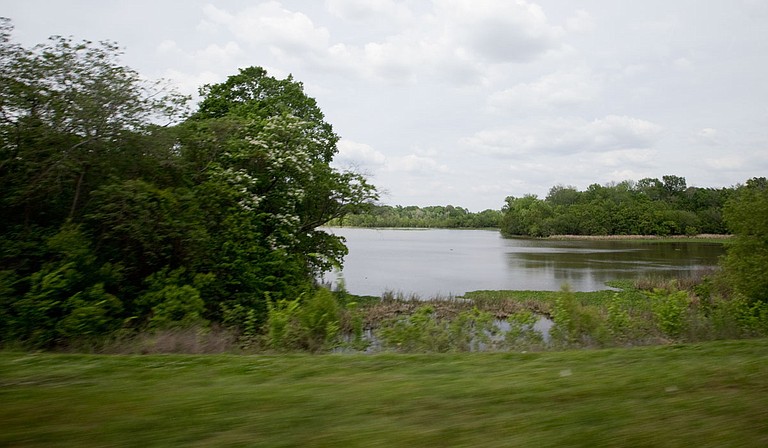
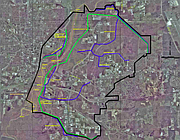
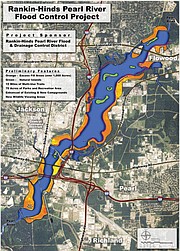
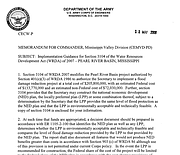
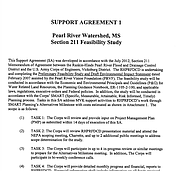
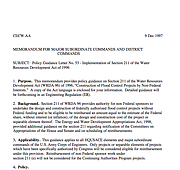
Comments
Use the comment form below to begin a discussion about this content.
Sign in to comment
Or login with:
OpenID